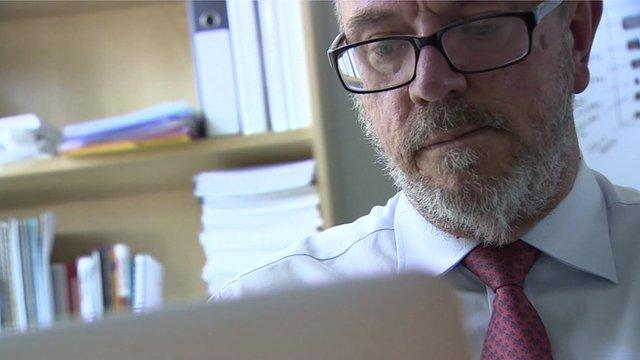Lord Carter's plans for saving the NHS £5bn a year
- Published
- comments
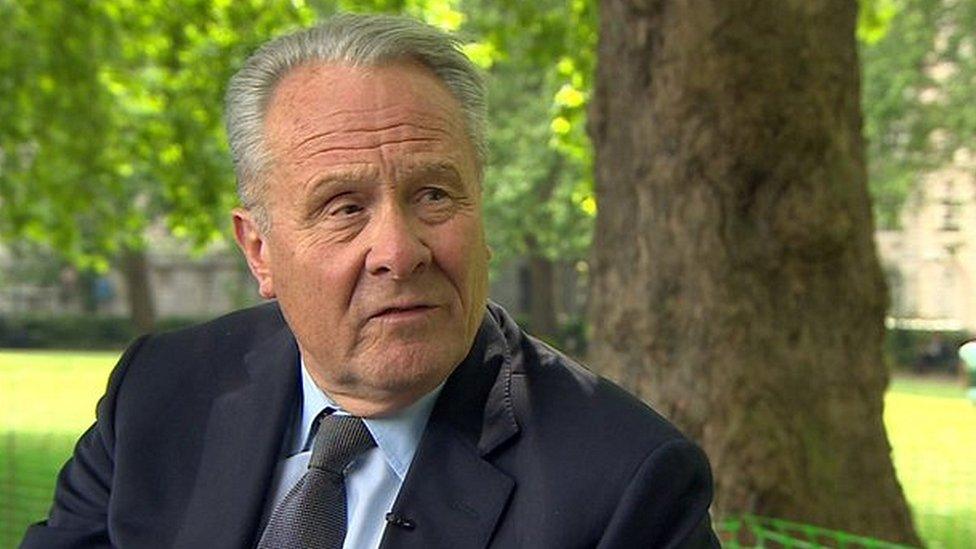
It's been dubbed the most ambitious ever plan for efficiency savings in the NHS. There has been speculation that it is undeliverable.
But amid all the debate about the planned £22bn of annual savings by 2020 in the NHS in England, one man has been rooting around the system working out how some of it might be achieved.
Now he has come up with a new set of proposals, some surprising, some controversial.
Lord Patrick Carter, a Labour peer as it happens, is advising Health Secretary Jeremy Hunt on how hospital budgets can be better spent.
In June he said up to £5bn a year could be saved annually by 2020. In his first report then he argued that some of it could be delivered by smarter procurement of hospital supplies and some by better management of staff rosters.
Now he has attempted to put more flesh on the bone, outlining other areas which could contribute to that £5bn figure.
'Variations in care'
In a nutshell, Lord Carter believes that just as there is variation in levels of care around the NHS, as identified by the Care Quality Commission, there are also variations in the use of money by hospitals - some are doing it well and providing good value for the taxpayer, some are not.
He is a firm believer in good leadership leading to high-quality patient care and the most efficient use of resources.
If hospitals all adopted the best practice for different surgical procedures and treatments, he argues, then outcomes for patients would be better and money would be saved.

Potential savings identified by report:
General Medicine: £381m
Obstetrics and Gynaecology: £362m
Trauma and Orthopaedics: £286m
Pathology: £256m
Cancer Services: £255m
Emergency Medicine: £254m
General Surgery: £235m
Community Nursing: £217m
High Cost Drugs: £213m
Paediatrics: £209m
Intensive and Critical care: £209m
Cardiology: £184m

Lord Carter has drawn here on the work of Professor Tim Briggs, a leading orthopaedic surgeon, who uncovered some surprising truths about the variations in quality across England's hospitals.
Infections after usually straightforward hip and knee replacements can lead to patients being readmitted and a greatly inflated bill for the total cost of their treatment and recuperation.
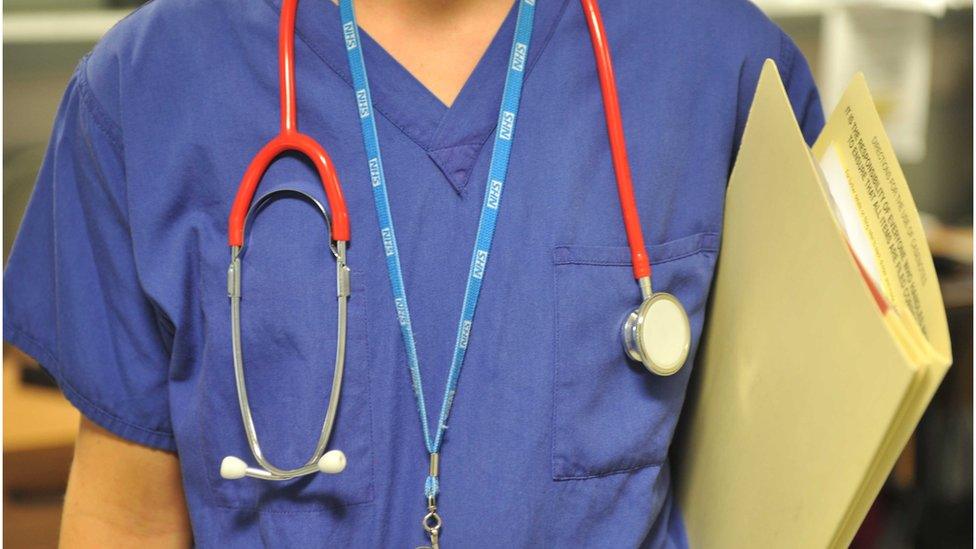
Prof Briggs found this readmission rate could vary between 0.5% at some hospitals and as much as 5% at others.
He advocates a standard set of techniques, eliminating the least effective surgical products and a more rigorous approach to infection control.
If all hospitals adopted this programme, he argues, more than £200m a year could be saved annually in orthopaedic surgery alone.
His work has now been eagerly adopted by Lord Carter, and Prof Briggs has been tasked, as newly-appointed national director for clinical quality and efficiency, to look for savings in other surgical areas.
Pooling resources
At first glance, they believe that £2bn a year - in some ways a staggering sum - could be saved simply by all hospitals adopting best surgical practice. That £2bn makes up part of the Carter £5bn overall savings.
Why, some might ask, is that not happening already? The answer, it seems, is that surgeons in different hospitals often develop their own way of doing things based on decades of experience.
They and their management colleagues may have no idea how other hospitals carry out the same procedures and how outcomes vary.
So Lord Carter's next plan is to contact all hospitals with data to help them assess their performance compared to their peers.
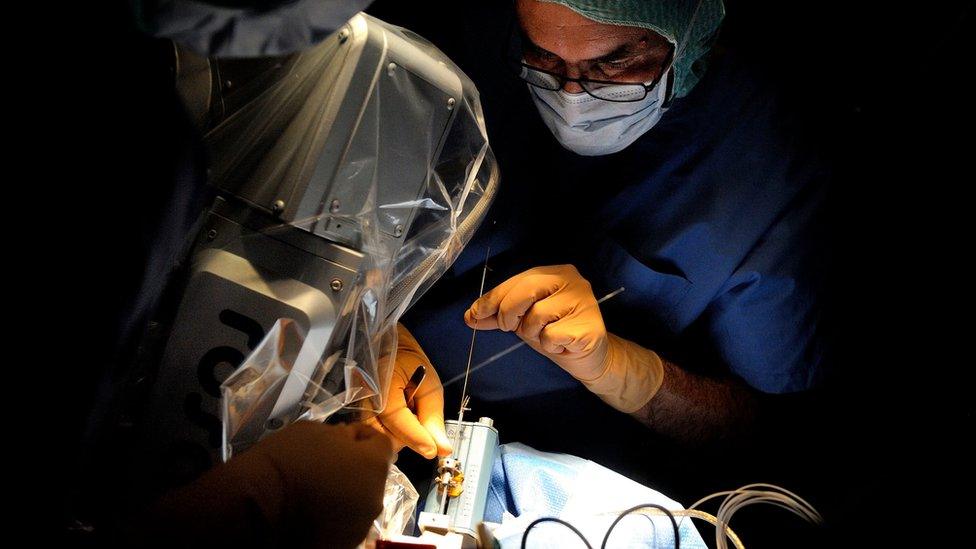
Lord Carter has other ideas, including encouraging medium-sized hospitals (district generals) to stop trying to cover every surgical area and to pool resources with neighbouring establishments.
Intriguingly his answer to the problem of delayed discharges of patients (known colloquially as bed-blocking) is for hospitals to build their own social care facilities or to arrange for their patients to be nursed in private care homes. These thoughts might be seen in some quarters as too radical.
The Carter reports have provided some detail on how £5bn per year might be saved by 2020. Another £4bn or so of savings will probably flow from the Treasury's decision to cap public sector pay rises at 1%. But that's still less than half of that £22bn target.
The Carter agenda in itself is a big ask for the NHS. An even bigger challenge remains - to fill the rest of the identified funding gap.
- Published21 October 2015
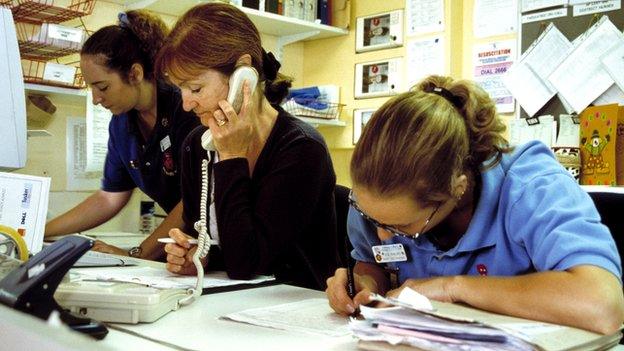
- Published16 April 2015
